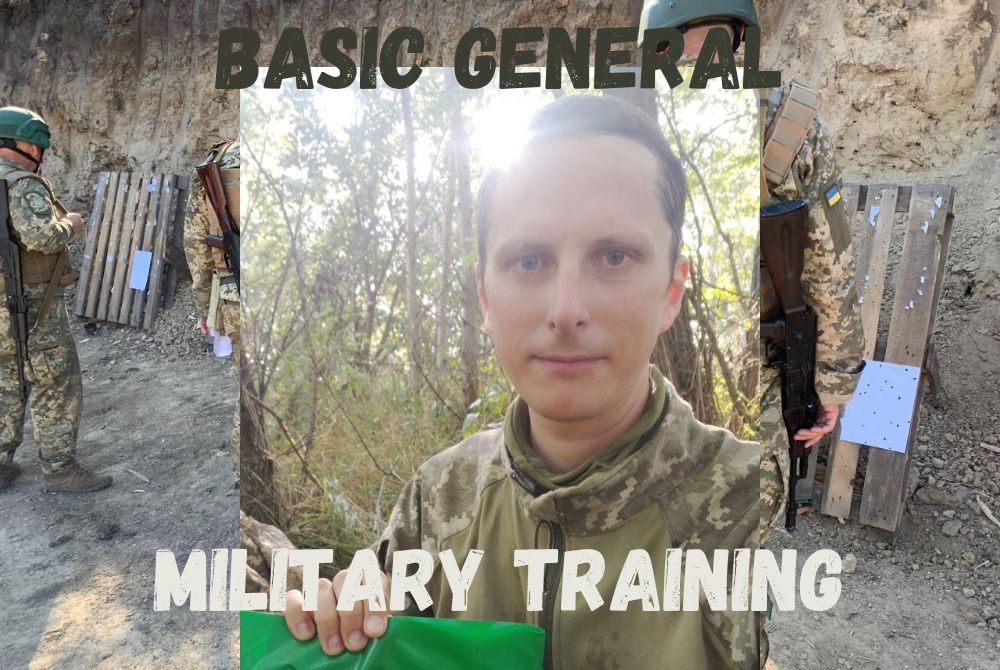Today was tactics day. The theory was interesting, and the practice was no less so. The practice involved defending and storming trenches. First, there was a lecture on “soldier actions in defensive combat.” It was an interesting lecture that explained how defense is prepared and organized. What types of troops are involved in it, what they do. Then there were many interesting stories about how it all happens in reality, not in books.
Then there was a lecture on storming positions. There was also some book theory about how an assault is carried out, and then some points were made about how it actually happens today. In fact, today many things are done differently than what is written in books. War has changed, and so have the tactics of waging it.
For security reasons, I will not write here everything that we were told.
I will share only one of the general conclusions. What I am about to write is no longer a secret to most people. An offensive can only be launched when there are reserves and the enemy is exhausted. Based on this, the current tactics and strategy of the Armed Forces of Ukraine become much clearer. And most importantly, it becomes clear how stupid and even harmful those people are who constantly shout, “Where is the counteroffensive?”, “Why aren’t you attacking?”, “You have such reserves, why aren’t you using them?”
First, you need to have good reserves. Second, you need to wear down the enemy first.
Then there was practice. Practice came to us suddenly and unexpectedly. No one said we would have such practice. We were suddenly gathered together, our commanders were called, and they went somewhere with our instructors. We all stood and waited. After a while, our commanders came back and, saying, “There’s no time to explain everything now,” took us to the trenches. Then, in the trenches, they gradually began to explain the situation to us. We were told to spread out across the trench and just observe. Observe, report, and record what was happening.
We spread out and began to observe. I had a very small area to observe. A small wagon and a path next to it.
So we stood there and did what we were told—we observed and recorded. There was a dugout near me, which we were supposed to run into when drones flew overhead. But, as practice showed, hiding behind a camouflage net was enough to protect us from drone strikes. I glanced into the dugout with one eye and returned to my position.
Sometimes we received reports that the enemy had been spotted somewhere. But they were far away, and there were only one or two people. But then there came a moment when reports of enemy sightings began to come in much more frequently.
Our trench had an eastern and western side. I was standing on the eastern side. And then frequent reports began to come in that the enemy had been spotted on the western side. They became more and more frequent. After a while, chaos broke out on the western side of the trench. From one side and then the other, we heard shouts of “I see five enemies near the strip” and “I see three enemies near the forest.”
There was a clear feeling that everything would happen on the western side.
On our side, one of the instructors said that since we had not yet stormed the trenches, the opposing team was unlikely to climb into the trenches. He repeated that we should just observe and record.
After a while, I began to see some movement near the trailer I was watching. Then I clearly saw that someone was there. I reported this. Then I saw it again and reported it again. But because there had been constant reports of enemy sightings on the western side for a long time, and it was already almost like a beehive, my reports were not given much attention.
After a while, the enemy was clearly visible near my trailer. I had already clearly stated this, and a couple of people from our team had even gathered at this location.
And then something happened that neither I nor anyone else in our trench had expected. People from the opposing team began to enter our trench from our dugout.
It was our failure. It turns out that there was an additional exit in our dugout, but it was camouflaged and not visible at first glance.
At first, I was simply surprised. I couldn’t understand what was going on.
Then the instructors told both teams to gather for a debriefing.
Both teams had to report on how things had gone. First, the assault team gave their report.
And it was then, when the assault team was giving their report, that I began to understand what had happened. It turned out that the instructor who had told us about a soldier’s actions in defensive combat was in charge of our defense in the trenches. And the instructor who told us about storming positions was in charge of storming these trenches.
It turned out that the commotion on the western side was done on purpose to distract our attention. This commotion was caused by the maneuvering group. And indeed, they created a slight chaos in our trenches and gave us the feeling that the main attack would come from there. But the main assault group was moving from the east. It was this group that found our trench through the dugout.
During the debriefing, our mistakes in defending the trenches were somewhat ridiculed. That we didn’t set up any observation posts, etc.
This made me a little angry. They didn’t tell us anything or explain anything.
After that, we changed positions. Now we had to attack, and those who had been attacking before now had to defend.
We divided our assault troops into the following groups:
Assault group
Maneuver group
Fire support
Reserve
My unit was placed in reserve. The most experienced soldiers were placed in the assault and maneuver groups.
The task of the reserve was to be a backup for the assault group. We had to move at a distance from the assault group and intervene if necessary.
We planned that the maneuver group would distract from the east, and the assault group would go from the west.
Our reserve group moved at a distance of about 100 meters from the assault group. As we approached, we heard screams and “bang bang bang” (bang bang bang is analogous to gunshots :). Then we received a report that the assault group had been defeated.
On the one hand, this was obviously bad news. But on the other hand, they probably weren’t expecting another attack from this side. On the advice of the instructor, we decided to move quickly to the trenches and launch a sudden and rapid assault. We were counting on the element of surprise.
We began to move quickly toward the trenches, along the barbed wire, splitting into two rows. Along the way, I saw a large used firecracker in the shape of a grenade, which was used as a substitute for a grenade on the barbed wire. Without thinking twice, I picked up the grenade as I ran. Considering that we had no bullets, this grenade could definitely be used as a grenade, especially since it was the same size as a grenade.
When we were less than 40 meters from the trenches, we sped up considerably and ran as fast as we could. I was running in the left column. The right column was the first to rush to defend the trench. But this distracted the defenders of the trenches. Running sharply out from behind the hill, I saw two people in the trench about 5-7 meters away and threw the grenade right between them. The defense of the trench was completely neutralized. Three more people were running behind us. Thus, the assault on the trench could continue.
But at that moment, the instructor stopped the exercise. He said that we had done well with our task.
Of course, all of this made us feel excited, inspired, and joyful.
Later, analyzing the defense and assault of the trenches, I thought that it was similar to the situation in Ukraine. At first, Ukraine was definitely not ready, and most people did not understand what was happening at all. And in this confused state, we allowed Crimea to be taken away. But then, when we began to understand what was happening, we became angry, angry at all this injustice.
I also saw how important it is to have reserves and what a big role they can play.
I hope that Ukraine will now gather all possible reserves in a similar way and win this war.




